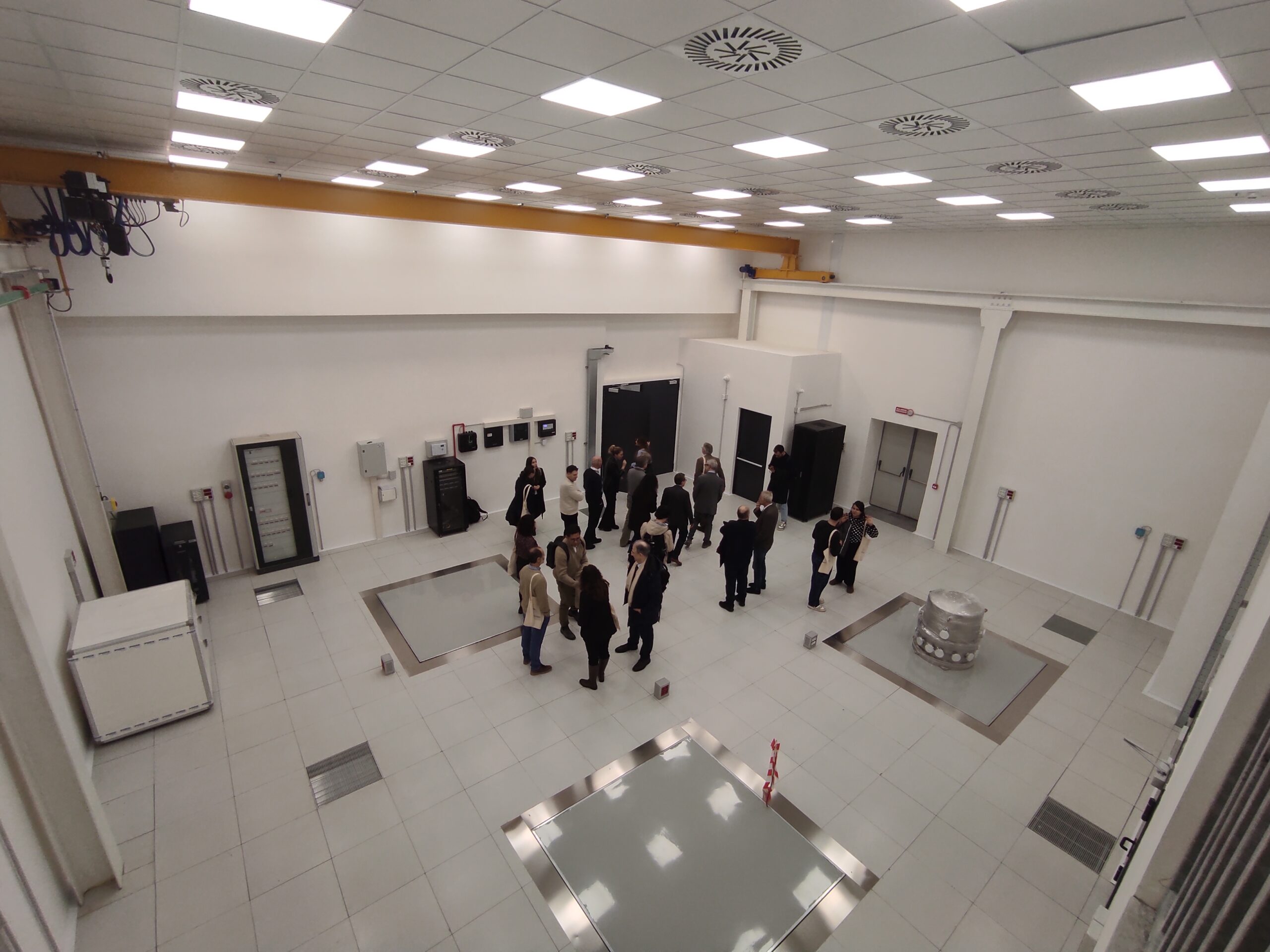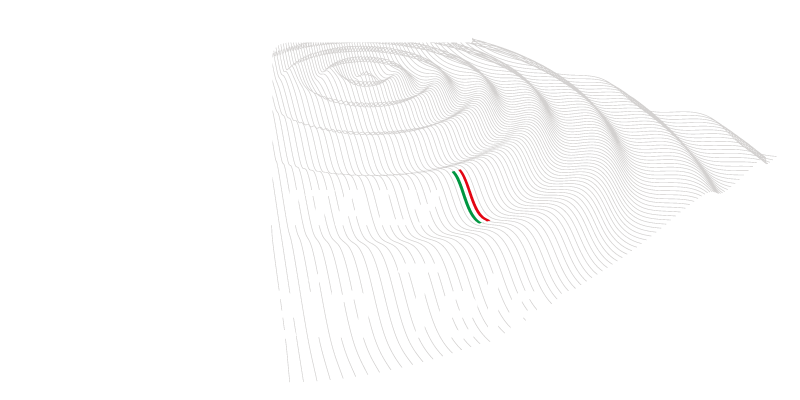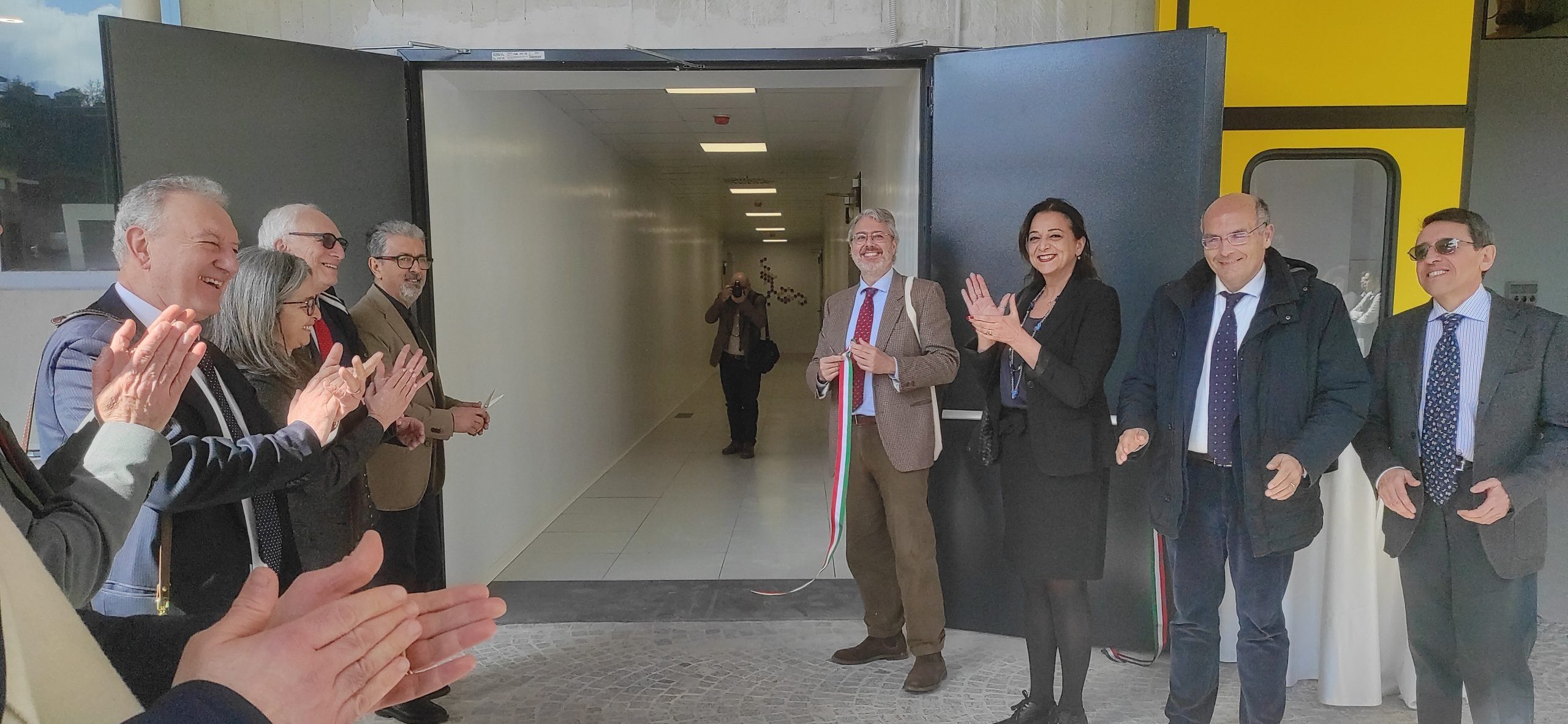On Monday, February 24, the research laboratories PLANET (Physics LAboratory in Naples for Einstein Telescope) and AIL (Advanced Instrumentation Laboratory) were inaugurated at the “Ettore Pancini” Department of Physics of the University of Naples “Federico II”. The former will develop cutting-edge technologies for the future Einstein Telescope (ET) gravitational wave observatory, while the latter will focus on the characterization of advanced quantum and diagnostic devices.
After the greetings from the institutional representatives, including the research delegate of the Neapolitan university, Lorenzo Marrucci, and the vice president of INFN, Marco Pallavicini, speeches were given by Michele Punturo (INFN Perugia), scientific coordinator of the ETIC project and international leader of Einstein Telescope, Lucio Rossi, professor of experimental physics at the University of Milan and head of the IRIS project, Rosario De Rosa and Giuliana Fiorillo, both professors of experimental physics at the University of Naples Federico II and heads of the PLANET and AIL laboratories, respectively.
The two laboratories are part of the national projects ETIC (Einstein Telescope Infrastructure Consortium) and IRIS (Innovative Research Infrastructure on Applied Superconductivity), funded by the European “Next Generation EU” funds through the National Recovery and Resilience Plan (NRRP) and scientifically coordinated by the National Institute for Nuclear Physics (INFN).
Specifically, ETIC aims to support Italy’s candidacy to host the Einstein Telescope, one of the most significant research infrastructures to be built in Europe in the coming years, near the disused Sos Enattos mine, in the Nuoro region. The main goals of ETIC include the characterization of the Sos Enattos site and the creation of a network of laboratories across Italy, including the newly established PLANET, which will develop innovative technologies for ET.
«The PLANET and AIL laboratories add to the extensive array of next-generation laboratories, enabling researchers and students to develop cutting-edge training and skills while attracting scholars from around the world», emphasized Matteo Lorito, Rector of the “Federico II” University. «Established through two Italian projects, ETIC and IRIS, funded by the European Next Generation EU program under the NRRP, these new laboratories are part of nationally significant research infrastructures, featuring a set of equipment that has few equals in Italy».
«The INFN, thanks to the NRRP funds made available by the MUR for the enhancement of research infrastructures, has invested heavily in the two national projects ETIC and IRIS, which focus on two broad scientific themes. The first is related to the significant technological effort we are making to support Italy’s candidacy to host the international Einstein Telescope project, the future gravitational wave detector, in Sardinia. The second concerns the ongoing development of superconducting technologies, both for fundamental research and for applications beneficial to society», adds Marco Pallavicini. «The opening of these two laboratories is an excellent example of a tradition we hold dear, which sees INFN’s scientific activities integrated with the activities of university physics departments: we believe that this collaboration is a great added value for both INFN and the universities».
«The PLANET laboratory represents a key element of Italy’s strategy for the realization of ET. In this laboratory will be developed some of the critical technologies that will enable the ambitious sensitivity goals of the Einstein Telescope to be achieved», explains Michele Punturo. «Specifically, the ETIC project has funded the infrastructure and equipment in Naples to enable the development of new seismic filtering systems for ET, design newly developed optical components for ET, and monitor of environmental and seismic noise sources. It is crucial for this laboratory to operate at full efficiency in the coming years so that Italy can take the lead in Europe in the realization of the Einstein Telescope».
PLANET is located in the “Ettore Pancini” Department of Physics and is equipped for the development and characterization of highly sensitive optomechanical systems. «The opening of this new laboratory will allow us to conduct research activities aimed at the future Einstein Telescope observatory, focusing on three key areas», says Rosario De Rosa. «The first concerns the development of a new prototype for ET’s mirror system, which, compared to currently used systems, will achieve the same level of seismic noise attenuation in a smaller space. see us engaged in research into new techniques for quantum noise reduction and interferometer sensing, respectively. The latter strand is carried out alongside the seismic, magnetic, and acoustic characterization of the Sos Enattos candidate site, which we have been working on for several years».

The PLANET laboratory

